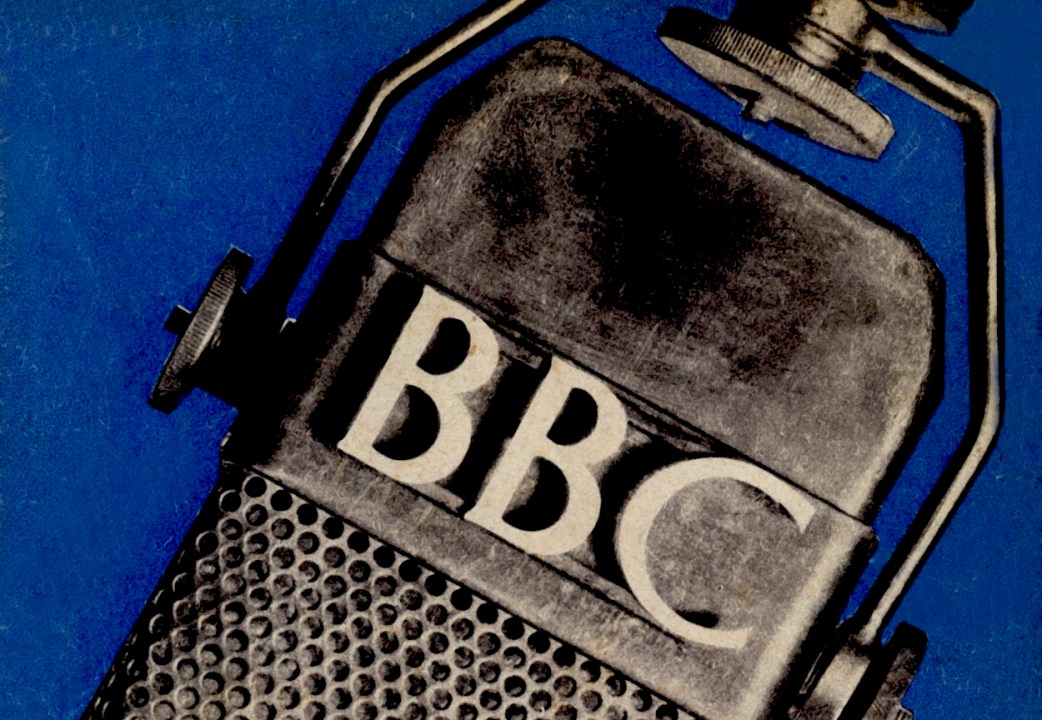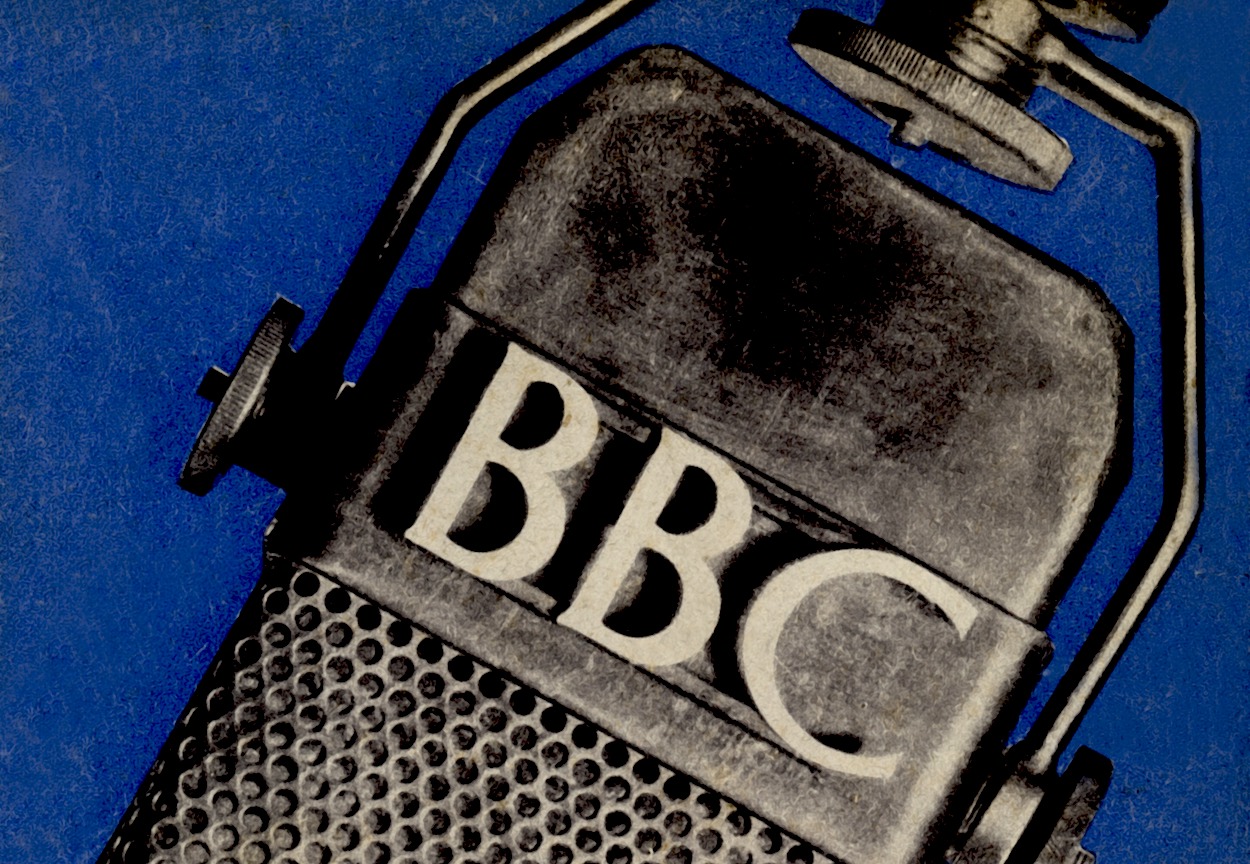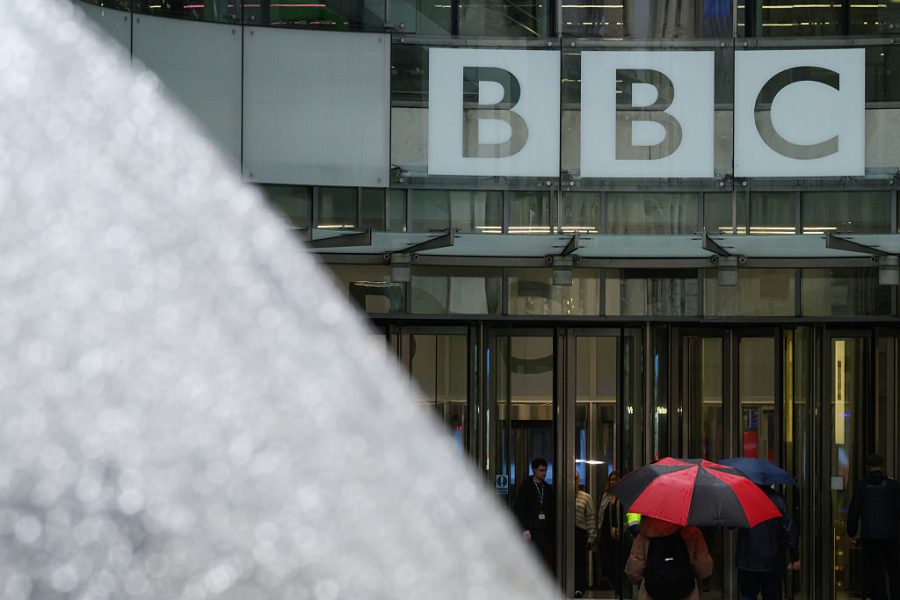By now you’ll know all about the crisis at the BBC, especially if you watch or read or listen to the BBC, which seems to be reporting on little else. There is nothing that exercises the corporation quite like the opportunity to talk about its specialist subject. You know the resignation of director general Tim Davie is a big story because BBC News has broken into its 24-hour coverage of Celebrity Traitors to bring us updates.
On-air talent is muttering darkly about political campaigns and the corporation being ‘under attack’, the standard metaphor for occasions when a media empire funded by a legally-enforced, universal TV tax is subjected to scrutiny. As I understand it, the rule is: when it’s GB News being criticised, it’s accountability; when it’s the BBC, it’s an assault on media freedom. Even so, cynics should not be too quick to dismiss talk of a coordinated plot against the BBC by right-wingers. In fact, I can exclusively bring Coffee House readers a step-by-step breakdown of how this sinister scheme proceeded.
The plotters began by flooding the corporation’s newsrooms with young, earnest graduates fresh from the intellectual monoculture that is the university – kids discharged in the main from studying humanities, social sciences and journalism. At some point, we decided it was wise that a segment of our young people spend three years being expensively miseducated by superannuated Maoists whose politics run the full spectrum from Marxist to Marxist-but-with-other-grievances.
Surprisingly enough, this produces young adults ill-equipped to work in the productive sectors of the economy but equally unsuited to employment that requires inquisitiveness, objectivity, a pluralistic frame of mind and, ideally, vague awareness of public opinion in that vast wilderness north of Muswell Hill, otherwise known as ‘Britain’. And so the right-wing conspiracy saw to it that the BBC recruit vast numbers of toweringly certain, emotionally fragile twenty-somethings with the cultural instincts and news sense of a doctoral candidate at Soas.
Phase One of its shadowy scheme complete, the right then moved onto Phase Two: Operation Bad Votes. Bad Votes saw the right manipulate the electorates of the UK and the US into voting the wrong way in the Brexit referendum and the 2016 presidential election. But the conspiracy’s true genius was to convince some BBC journalists, presumably via some sort of mind control device, that these were not mere surprise outcomes or democratic expressions of displeasure with uncontrolled immigration or economic stagnation.
And so the BBC dedicated rather a lot of time to exploring whether voters were simply angry, under-educated or racist, and whether these electoral outcomes were the result of a Kremlin plot to use ‘dark money’ to put Russian assets at the heart of British and American politics. This was an explicit rejection of old fuddy-duddy notions of impartiality and balance, which were of course responsible for Brexit, Trump and the rising tide of fascism. Almost overnight, truth went from being relative and socially constructed to being an objective reality discernible only by critical-thinking reporters. Thinking critically about Trump, whiteness, nationalism, gender and Zionism was journalism. Thinking critically about immigration, multiculturalism, crime, Pakistani child-rape gangs, or Muslim anti-Semitism was misinformation.
Then came the right-wing conspiracy’s most audacious move: arranging for a white police officer in Minneapolis to kill a black man in the middle of a pandemic, setting off a cultural panic about racism and white supremacy in everything from the TV show Cops to the packaging for Uncle Ben’s microwave rice. Somehow, right-wingers got BBC newsrooms to become fixated on George Floyd and the legacy of his murder and in doing so to adopt uncritically every aspect of the American left’s race discourse.
Not only did this lead to a disproportionate focus on a US story in news produced for a UK audience, it sent BBC journalists on the hunt for domestic stories about race and racism that could be forced into the framework of American racial politics, and so licence fee payers were brought TV and radio segments, and a seemingly endless stream of online articles, about the hitherto unmentioned crisis of racially exclusive country walks. (The right-wing conspirators also saw to it that the word ‘indigenous’ crept into BBC coverage and discussions of race, an obvious import from the United States since the term’s prior appearance in British discussion of race had been limited to BNP leaflets.)
Around about the same time, the right-wing plotters were inducing BBC journalists to spurn due impartiality in their coverage of gender identity ideology. As a result, trans rights activism has routinely been passed off as public service journalism and sceptical (read: hostile) enquiry has mostly been limited to disbelievers in the ideology. At the more benign end of the scale, this has manifested in an almost self-parodic determination to crowbar bold, brassy drag queens into as much BBC output as possible. At the more sinister end, it has involved BBC News reporting male offenders as women.
I’m not sure the BBC can still be saved
The conspiracy’s conniving hand can be seen also in the BBC’s coverage of the Gaza war. The right manipulated the corporation into refusing to refer to Hamas terrorists as terrorists, into regurgitating Hamas-devised death tolls, into repeating patently propagandistic claims of mass famine and genocide. It was the right that made the BBC lead TV and radio bulletin after bulletin with Gaza while leaving bloodier conflicts to languish in occasional online write-ups. The right also made the BBC air a documentary about Gaza without telling viewers the narrator was the son of a Hamas minister. The right made them platform extremists on BBC Arabic.
And it was those same right-wing plotters, in their latest act, who ensured the BBC’s response to this episode was defensive, self-pitying, unapologetic, and imperious. Don’t you know it’s the most trusted news brand? (Yes, that’s what makes its editing of the Trump speech so outrageous.) Don’t you know its commercial and ideological detractors are out to get it? (All the more reason not to give them so much ammunition.) Don’t you know the BBC’s charter, editorial guidelines and code of practice are the gold standard in journalistic ethics? (Indeed, which is why it was unwise to disregard them and allow the corporation’s newsrooms to pursue activist agendas.)
I’m not sure the BBC can still be saved, but if it wishes to improve its chances it should stop seeing itself as the victim of a right-wing putsch and take away its enemies’ arguments. It should recognise that the Corporation lost its way over the last decade or so, especially in news coverage, and resuscitate the principles of impartiality, integrity, rigour, honesty and reliability that made the BBC worthy of the widespread trust and respect it once enjoyed.









Comments